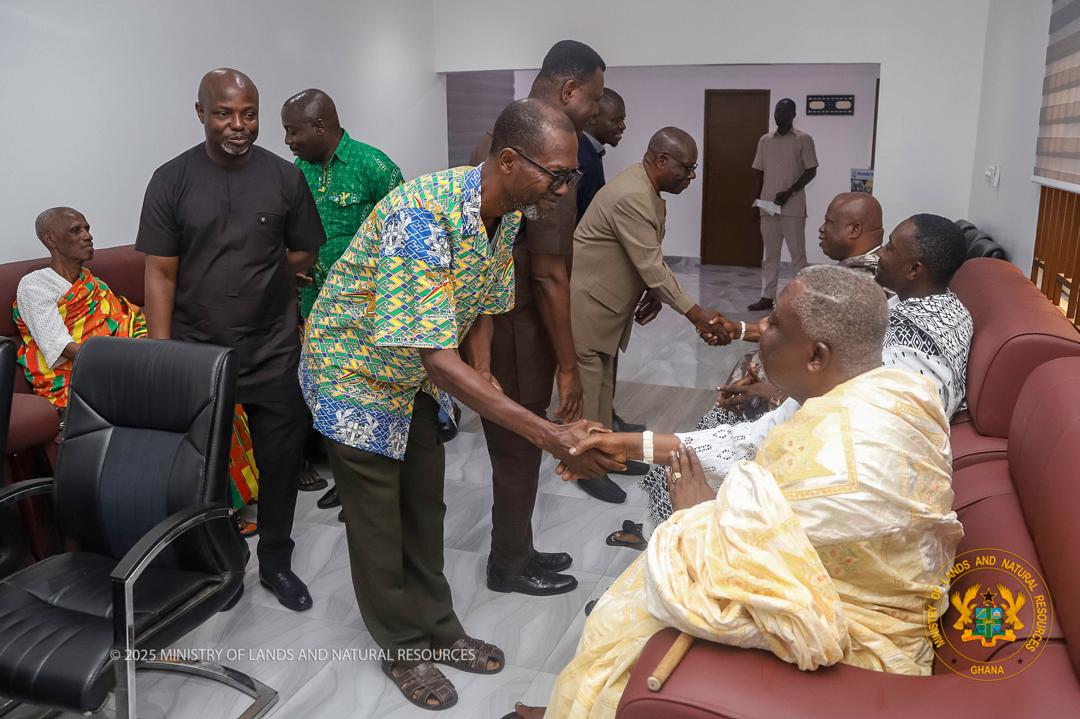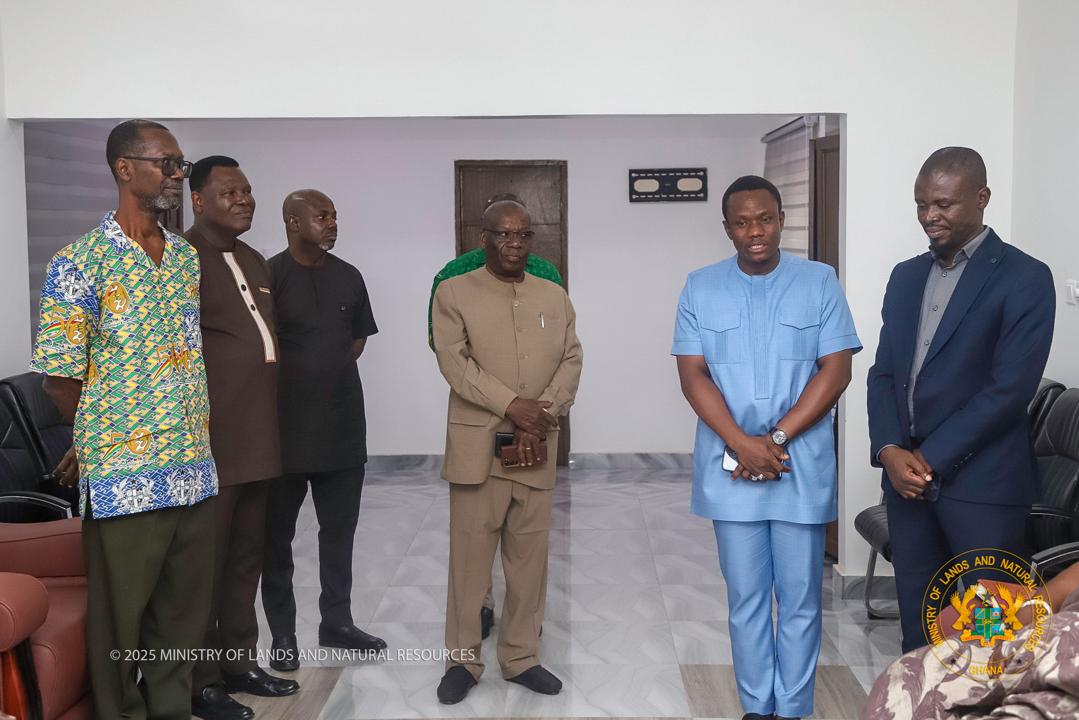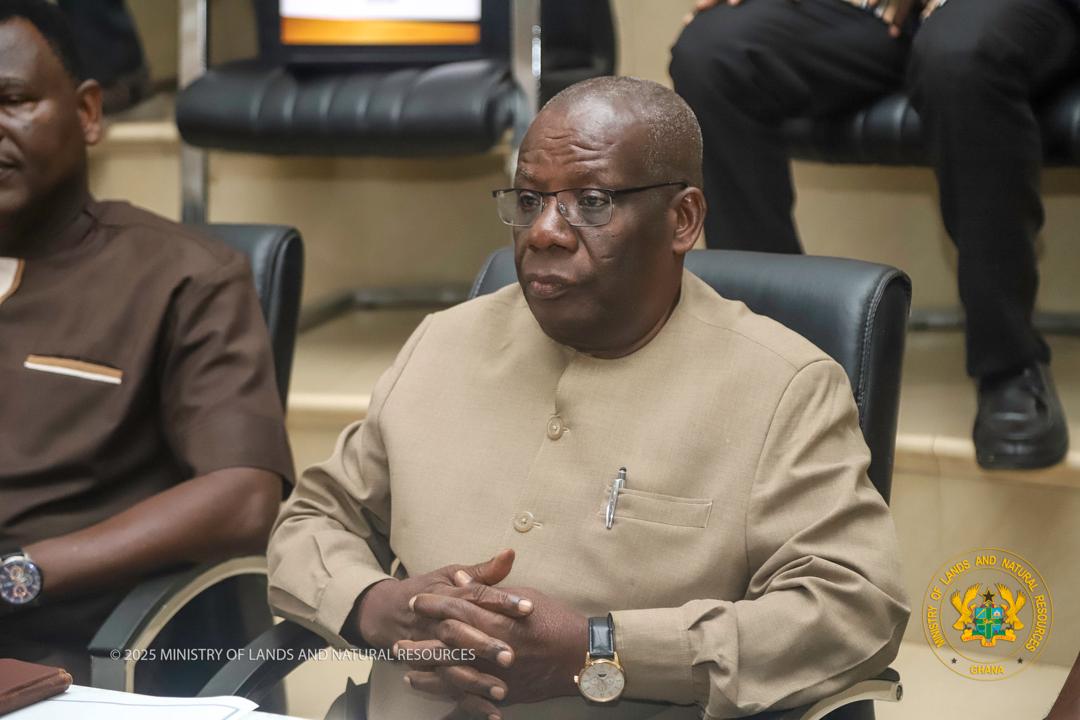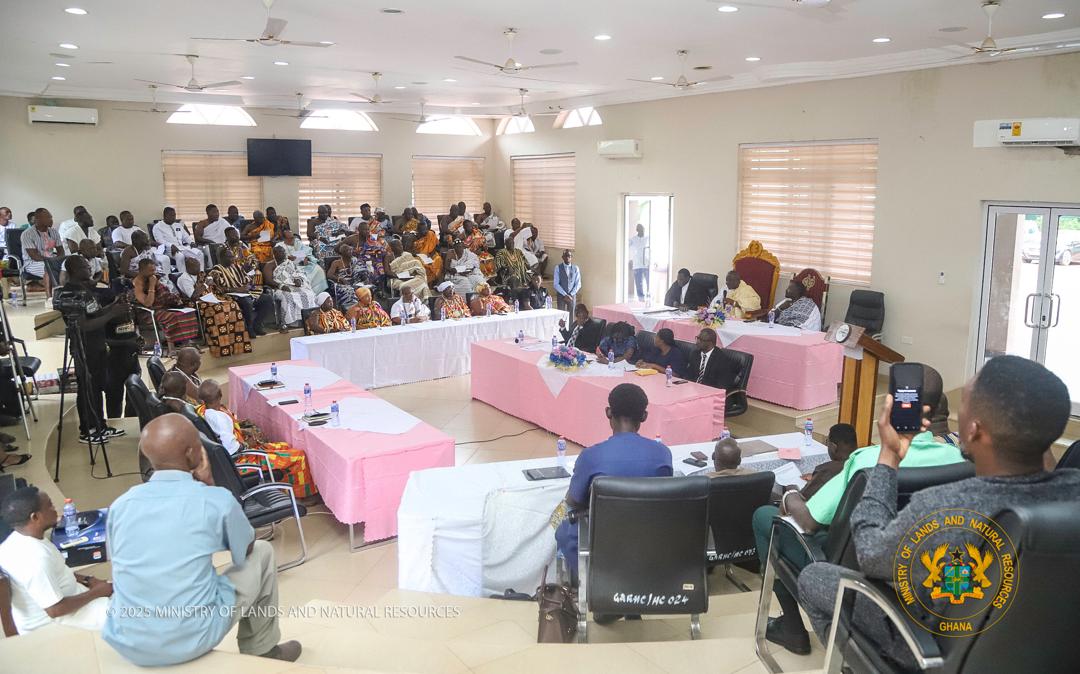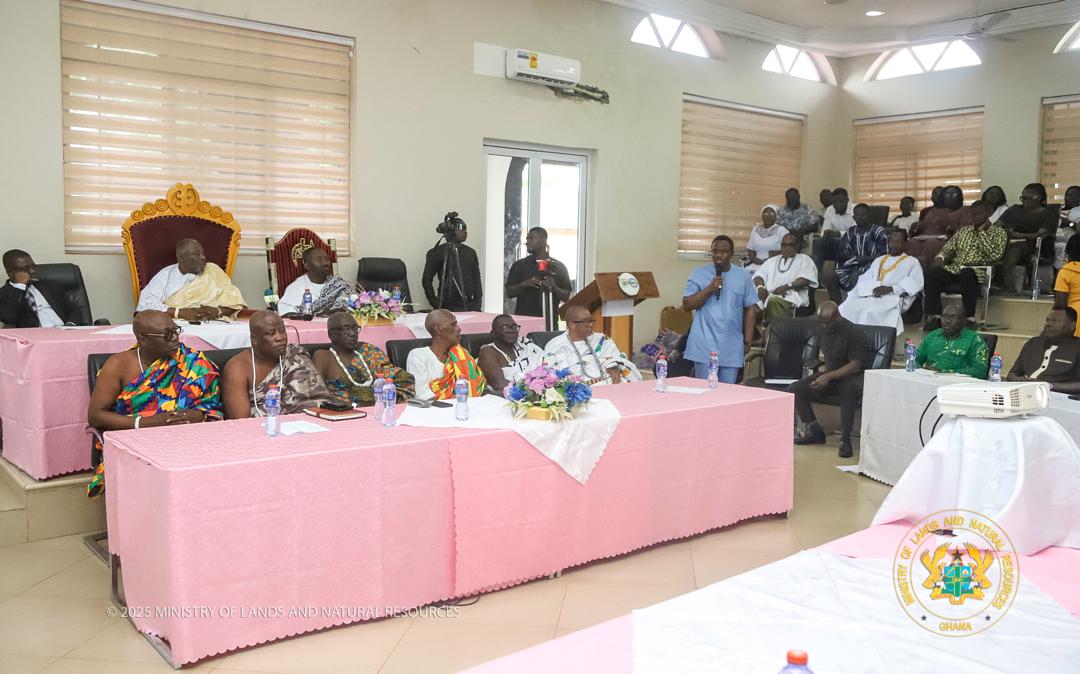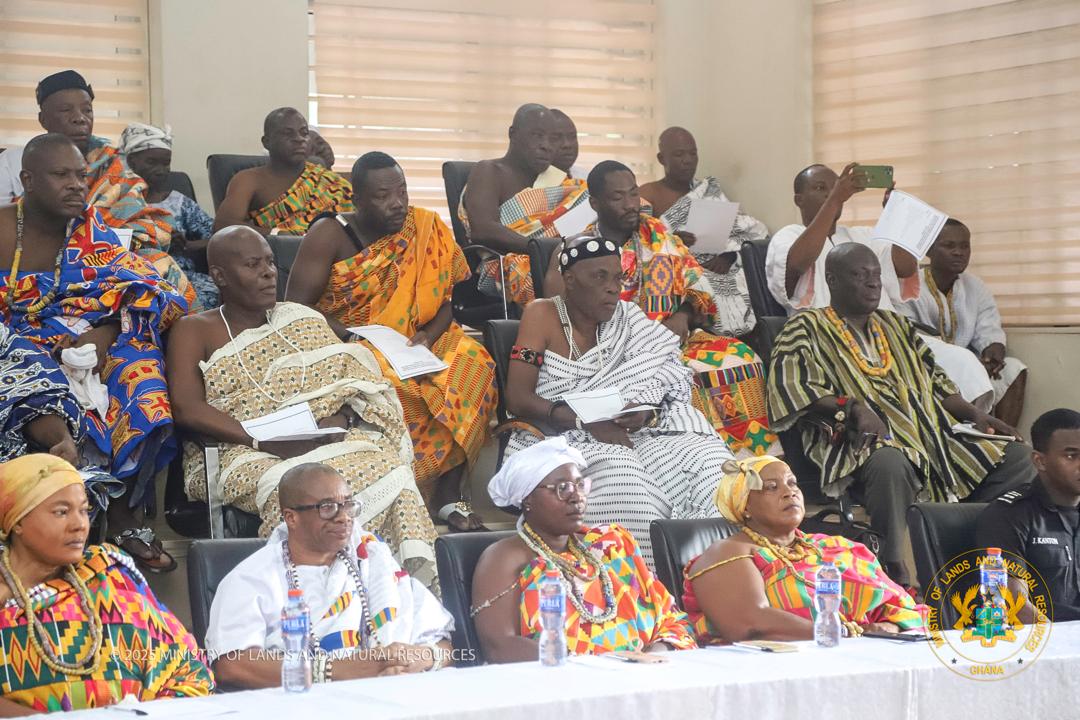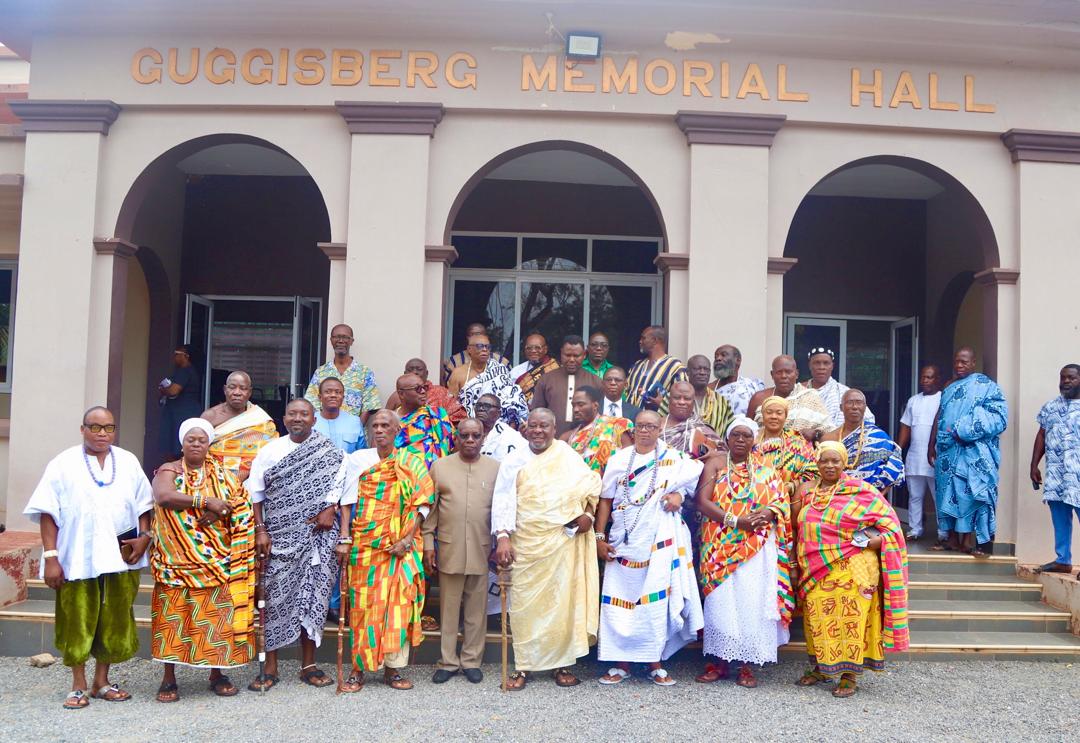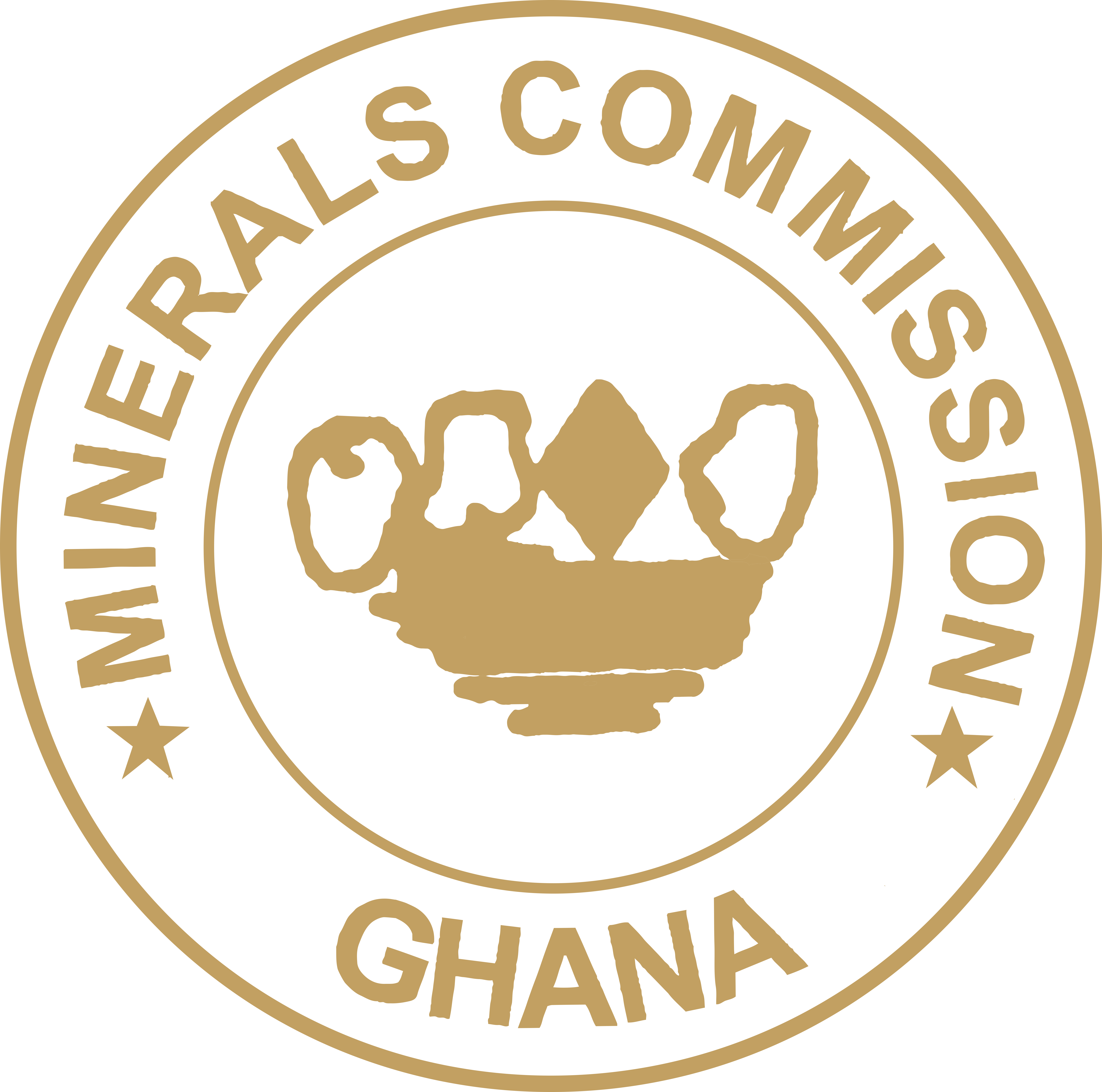Traditional Authorities Get Boost in Ghana’s Mining Sector Reforms
Addressing the Greater Accra Regional House of Chiefs, Mr. William Ntow Boahene, Esq., Chairman of the Minerals Commission Board, underscored the government’s commitment to aligning Ghana’s mining regulatory framework with contemporary challenges and opportunities through a comprehensive review process.
The Board Chairman stated that Stakeholder engagement, particularly with traditional authorities and community leaders, is paramount in this endeavor, ensuring that policies and frameworks are informed by the lived experiences of our people.
He noted that as custodians of land and culture, chiefs play a pivotal role in shaping legislative instruments that govern the utilization and conservation of our natural resources. While our current mining legislation has served us well, the pressing challenges of environmental degradation, water pollution, and illegal mining necessitate a bold and visionary review of our legal architecture, he added.
The stark reality is that our rivers are drying up, farmlands are being ravaged, and ecosystems are being irreparably damaged, imperiling the prospects of future generations. Therefore, this review must be forward-thinking and proactive.
King Professor Odaifio Welentsi III, President of the Greater Accra Regional House of Chiefs, commended the Minerals Commission for convening the engagement, highlighting the vital role of traditional authorities in the mining sector.
He noted that while the Constitution vests mineral ownership in the President, traditional authorities play a crucial role in land administration and benefit sharing.
The law requires notification of chiefs before granting mineral rights and mandates payment of annual ground rents on school lands.
However, revenue due to traditional authorities and stools is often negligible, underscoring the need for a more conscious partnership between stakeholders.
Odaifio Welentsi III, noted that the law also provides for traditional authority representation in compensation negotiations and resettlement monitoring committees, as well as appointment of traditional rulers to the Minerals Development Fund governing board.
King Welentsi III commended the Commission’s achievements, particularly the introduction of a nine-year limit on prospecting licenses, which will promote responsible mining practices through an ‘use it or lose it’ approach. Kudos to the Commission for this initiative.
Mr. Josef Iroko, Manager of Legal, provided an in-depth analysis of the current state of Ghana’s mining laws and regulations, as well as administrative and regulatory guidelines. He emphasized the significance of Parliamentary ratification of mining leases, underscoring the critical role of legislative oversight in ensuring accountability and transparency in the mining sector.
Additionally, Mr. Iroko highlighted the rights and responsibilities of District Mining Committees in overseeing mining activities within their jurisdictions, ensuring that local communities are engaged and involved in the decision-making process. Notably, he stressed the crucial role of Chiefs and traditional leaders as allodial owners of the land, entitled to compensation as stipulated in Ghana’s mining laws.
Mr. Iroko also presented a comprehensive overview of the Minerals and Mining Law, Act 2006 (Act 703), and outlined significant amendments to Ghana’s mining laws, providing valuable insights into the evolution of the country’s mining regulatory framework.
Mr. Benjamin Aryee, former Chief Executive Officer of the Minerals Commission and Advisor to the Minister, presented a comprehensive review of the 2014 Mining Policy, highlighting salient new provisions. Notably, he emphasized the integration of the Green/Critical Minerals Policy, which underscores the imperative of sustainable mining practices in the face of burgeoning global demand for critical minerals.
Furthermore, Mr. Aryee discussed the impact of emerging global trends, including climate change and the increasing importance of Environment, Social, and Governance (ESG) standards, on Ghana’s mining sector.
He also highlighted key government policies, such as the introduction of Cooperative Mining and the recategorization of mining, which includes the creation of a medium-scale category. ‘Emerging global trends, such as climate change and the growing significance of transition minerals, coupled with challenges arising from implementation over the past decade and the strategic importance of small-scale mining to Ghana’s economy, necessitate a paradigm shift in our approach,’ the statement asserted.
This review underscores the need for a forward-thinking and adaptive mining policy framework that addresses the complexities of the modern mining landscape.
END

